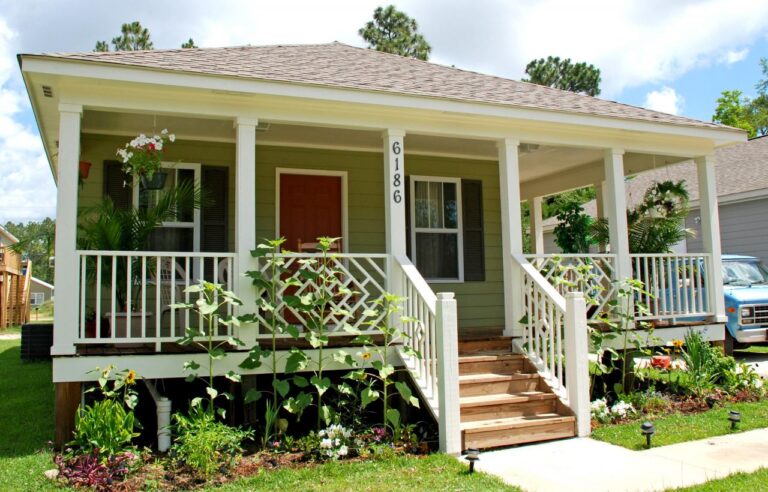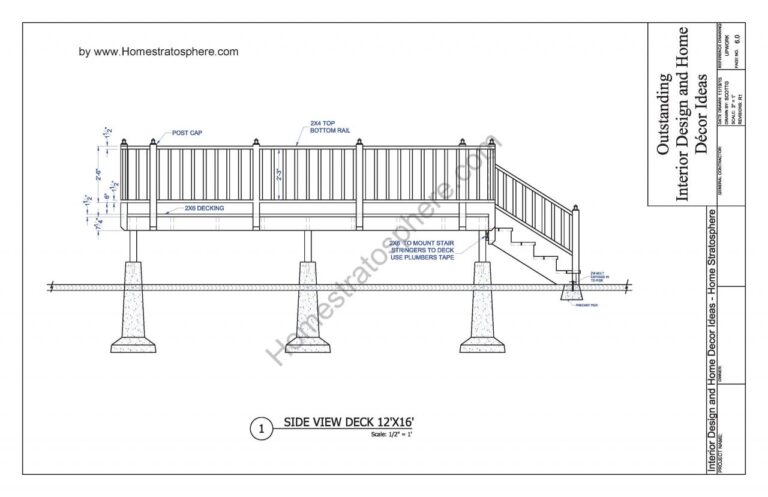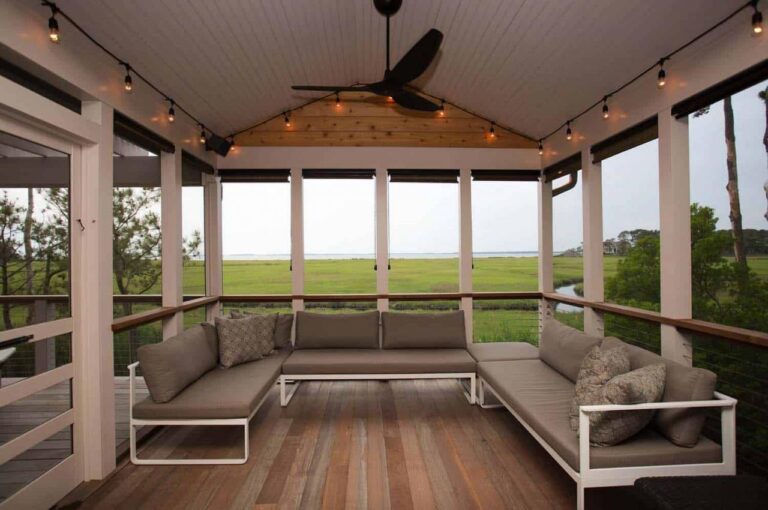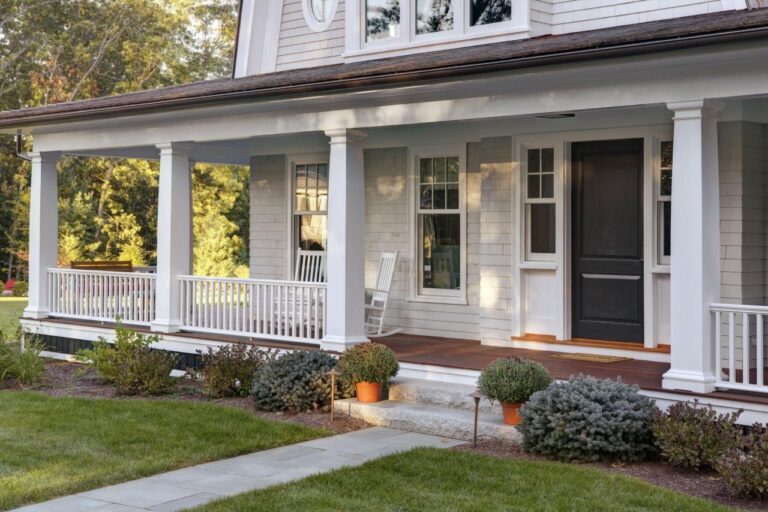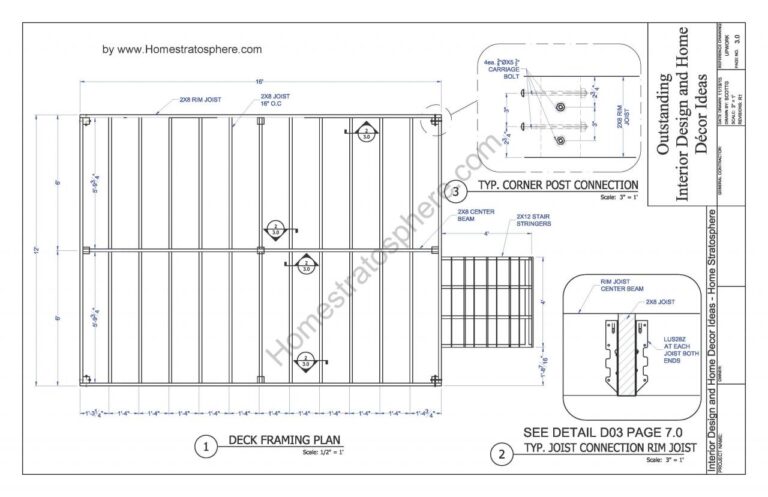Back Porch Plans For Houses
Back porch plans for houses offer a delightful blend of practicality and aesthetic appeal, transforming outdoor spaces into inviting extensions of the home. This exploration delves into the multifaceted world of back porch design, construction, and regulation, guiding you through the process from initial concept to final touches. We’ll cover design considerations for various house styles, explore sustainable building materials and cost-effective solutions, and detail the integration of functional features like seating, grilling areas, and lighting. Furthermore, we’ll navigate the complexities of permits, building codes, and accessibility regulations to ensure your project is both beautiful and compliant.
Whether you envision a cozy retreat for relaxation or a vibrant entertainment hub, this comprehensive guide provides the knowledge and inspiration to create the perfect back porch for your home. From selecting the ideal architectural style and materials to mastering the construction techniques and ensuring compliance with regulations, we’ll empower you to bring your dream outdoor space to life.
Design Considerations for Back Porch Plans
Designing a back porch involves careful consideration of several factors to ensure it complements your home and meets your needs. This section will explore key design elements, including space-saving techniques for smaller homes, sustainable material choices, architectural style comparisons, and the safe integration of lighting and electrical components.
Space-Saving Techniques for Small Suburban Houses
For smaller suburban homes, maximizing space is crucial. A narrow, deep porch design can provide ample usable area without overwhelming the backyard. Built-in seating with storage underneath effectively utilizes vertical space. Consider using folding or retractable furniture to allow for flexibility in space usage.
Sustainable Materials for Back Porch Construction
Sustainable materials minimize environmental impact. Reclaimed wood offers a unique aesthetic and reduces reliance on newly harvested lumber. Bamboo, known for its rapid growth and durability, is a strong alternative decking material. Locally sourced stone or concrete can reduce transportation costs and emissions. Properly treated lumber reduces the need for frequent replacements, further promoting sustainability.
Comparison of Victorian, Craftsman, and Modern Farmhouse Back Porch Styles
Each architectural style offers a distinct aesthetic. The table below provides a comparison:
| Style | Characteristics | Materials | Overall Impression |
|---|---|---|---|
| Victorian | Ornate detailing, gingerbread trim, often wrap-around | Wood (often painted), intricate metalwork | Grand, detailed, and elaborate |
| Craftsman | Simple, sturdy design, low-pitched roof, exposed beams | Natural wood, stone, low-maintenance materials | Rustic, warm, and inviting |
| Modern Farmhouse | Clean lines, a blend of rustic and modern elements, large windows | Wood, metal, stone, and sometimes composite decking | A modern yet comfortable, blend of textures |
Lighting and Electrical Outlets: Safety Considerations
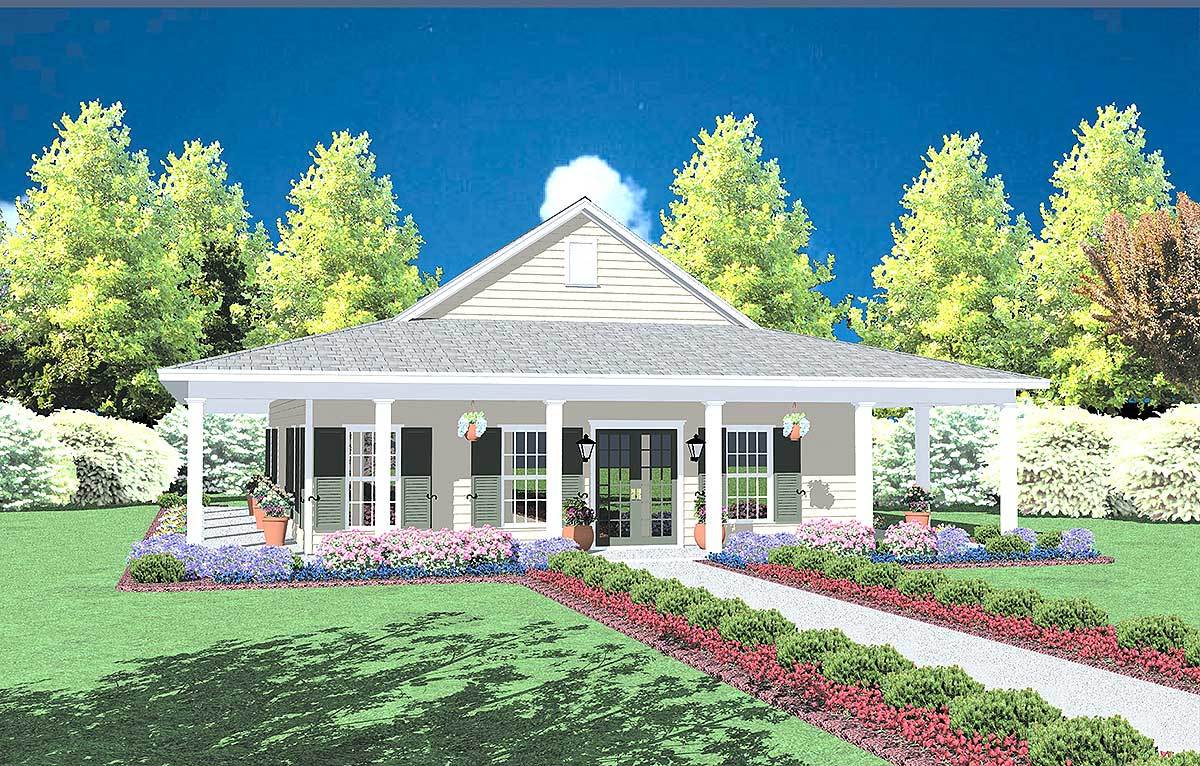
Source: amazonaws.com
Proper lighting and electrical installations are essential for safety and functionality. Use weatherproof fixtures and GFCI-protected outlets to prevent electrical shocks. Adequate lighting enhances security and ambiance. Consider recessed lighting for a cleaner look, and always adhere to local electrical codes.
Building Materials and Costs: Back Porch Plans For Houses
The cost of building a back porch depends heavily on materials and labor. This section details cost breakdowns, material comparisons, and cost-effective alternatives.
Cost Breakdown for a 10ft x 12ft Pressure-Treated Lumber Porch
A 10ft x 12ft back porch using pressure-treated lumber will vary based on location and labor costs. However, a rough estimate might include lumber ($1500-$2500), fasteners ($100-$200), foundation materials (concrete or piers: $500-$1500), roofing materials ($500-$1500), and labor ($2000-$5000). This totals approximately $4600-$11,700, excluding permits and unforeseen expenses. Always obtain multiple quotes from contractors.
Advantages and Disadvantages of Decking Materials
Choosing the right decking material is crucial. Here’s a comparison:
- Wood:
- Advantages: Natural beauty, relatively inexpensive (depending on type), readily available.
- Disadvantages: Requires regular maintenance (staining, sealing), susceptible to rot and insect damage.
- Composite:
- Advantages: Low maintenance, durable, resists rot and insects.
- Disadvantages: More expensive than wood, can fade over time, and may not look as natural.
- Concrete:
- Advantages: Extremely durable, low maintenance, and fire-resistant.
- Disadvantages: Can be expensive, can crack over time, and can get very hot in direct sunlight.
Reclaimed Wood Back Porch Design
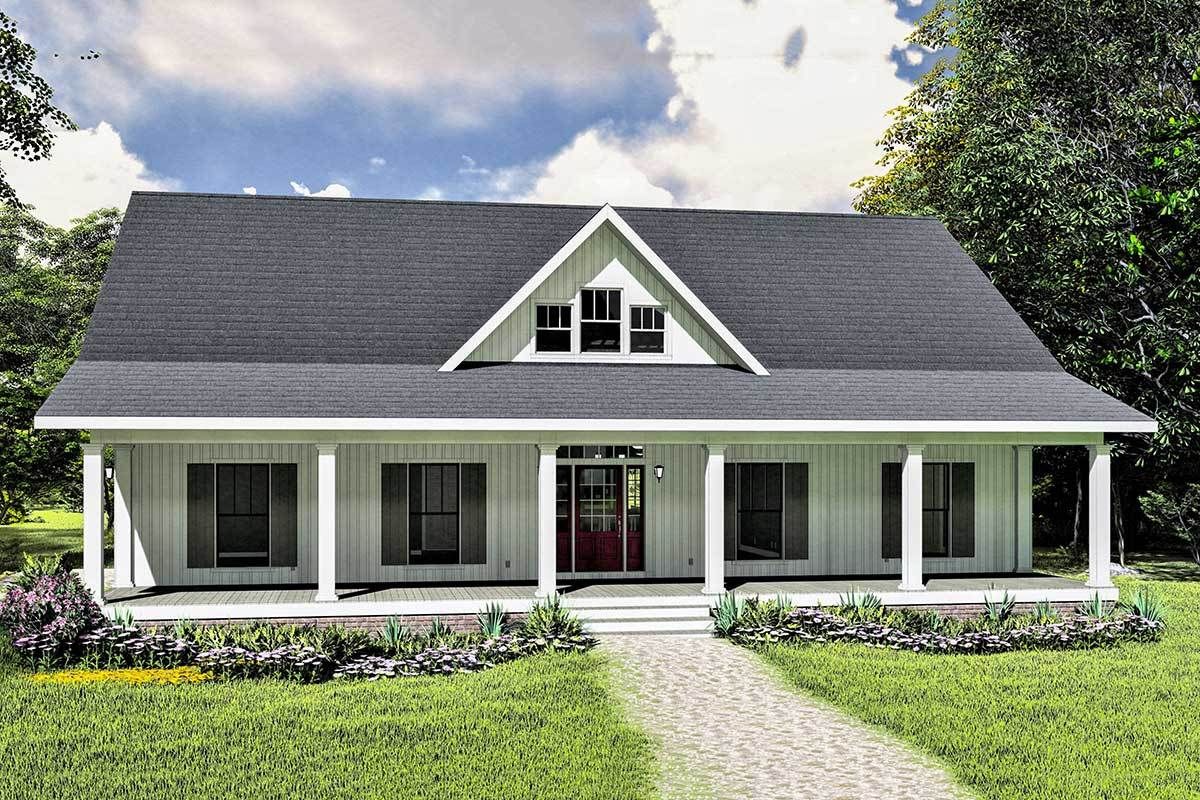
Source: pinimg.com
Using reclaimed wood offers environmental and aesthetic benefits. Suitable woods include old barn wood, reclaimed lumber from demolished structures, or sustainably harvested wood. The process involves inspecting the wood for soundness, cleaning, treating it against pests, and then constructing the porch. The unique character of reclaimed wood adds charm and individuality.
Cost-Effective Back Porch Roof Structures
Cost-effective roof options include using a simple gable roof design, minimizing overhangs to reduce material needs, and utilizing readily available materials like metal roofing (longer lifespan and lower maintenance) or recycled corrugated metal.
Back Porch Features and Functionality
This section details the design and construction of various back porch features to enhance functionality and enjoyment.
Built-in Seating with Underneath Storage
A built-in seating area maximizes space and adds a custom touch. Construct a sturdy frame, add comfortable cushions, and incorporate hinged lids for access to storage beneath the seats. Consider using weather-resistant materials and ensuring proper ventilation to prevent moisture buildup.
Pergola or Awning Integration
A pergola or awning provides shade and protection from the elements. A pergola can be constructed using pressure-treated lumber or cedar, supported by sturdy posts. An awning offers more protection from rain and sun but requires more intricate installation. Proper anchoring and support are critical for both.
Back Porch Grilling Area Design
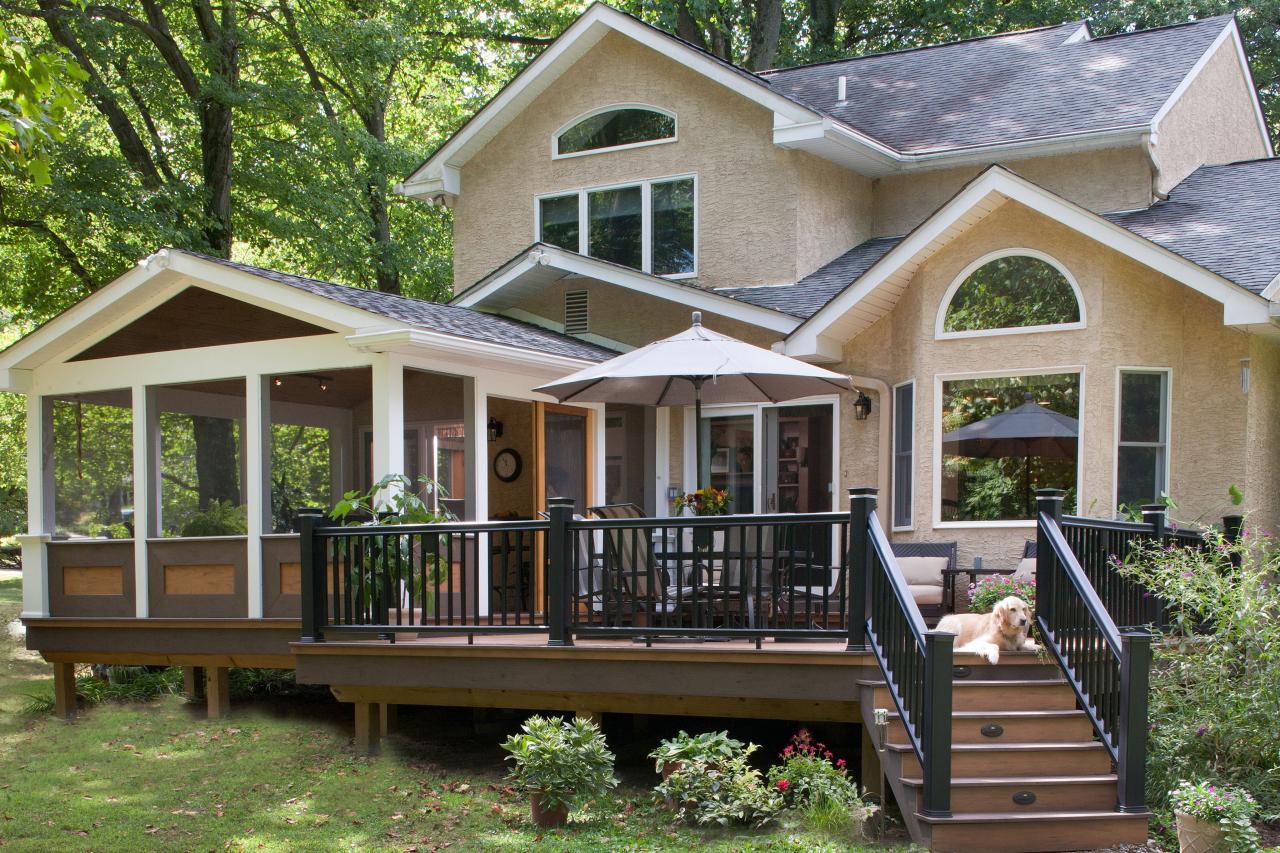
Source: pinimg.com
A dedicated grilling area enhances outdoor entertaining. Ensure adequate ventilation to remove smoke and fumes. Install a fire-resistant surface around the grill. Include nearby electrical outlets for grilling equipment and sufficient lighting for evening use.
Illustration Description: The illustration depicts a built-in grilling station with a brick surround, a metal hood with a vent, and a side counter for food preparation. Recessed lighting illuminates the grilling area, while a nearby electrical outlet is conveniently placed.
Back Porch Railing System Construction Methods
Three common railing systems are wood, metal, and composite. The table below compares them:
| Material | Safety & Aesthetics |
|---|---|
| Wood | Relatively easy to install, and esthetically pleasing, but requires regular maintenance and can rot. Proper fastening is crucial for safety. |
| Metal | Durable, and low maintenance, but can be more expensive and may require professional installation. Ensuring proper grounding and corrosion resistance is important. |
| Composite | Combines durability and low maintenance of metal with the aesthetics of wood. Often more expensive than wood, but requires less maintenance. |
Permits and Regulations
Before starting construction, understand local building codes and regulations. This section Articulates the permit process and compliance requirements.
Obtaining Necessary Permits
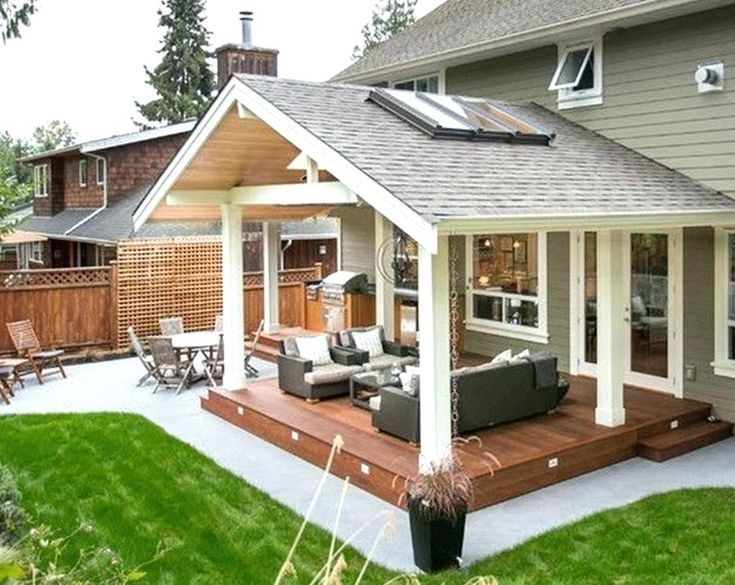
Source: pinimg.com
The permit process typically involves submitting plans to the local building department, including detailed drawings, material specifications, and site plans. Fees vary depending on location and project size. Inspections will be conducted at various stages of construction to ensure compliance with codes.
Local Building Codes and Regulations
Local building codes address structural integrity, safety, and accessibility. These codes often specify requirements for foundation, framing, roofing, electrical, and plumbing. It’s crucial to review these codes before starting any construction.
Zoning Restrictions, Back porch plans for houses
Zoning restrictions may limit back porch size, height, and proximity to property lines. Check with the local zoning department to ensure your plans comply with these regulations. Setbacks and building envelopes are important considerations.
ADA Compliance for Back Porch Design
For accessibility, ensure adequate space for wheelchair access, including ramps with appropriate slopes and handrails. The porch should have a level surface, and railings should meet ADA height and spacing requirements. Consult ADA guidelines for specific details.
Back Porch Style and Aesthetics
The aesthetic of your back porch should complement your home’s style. This section explores design options for various architectural styles.
Back Porch Design for a Traditional Colonial House
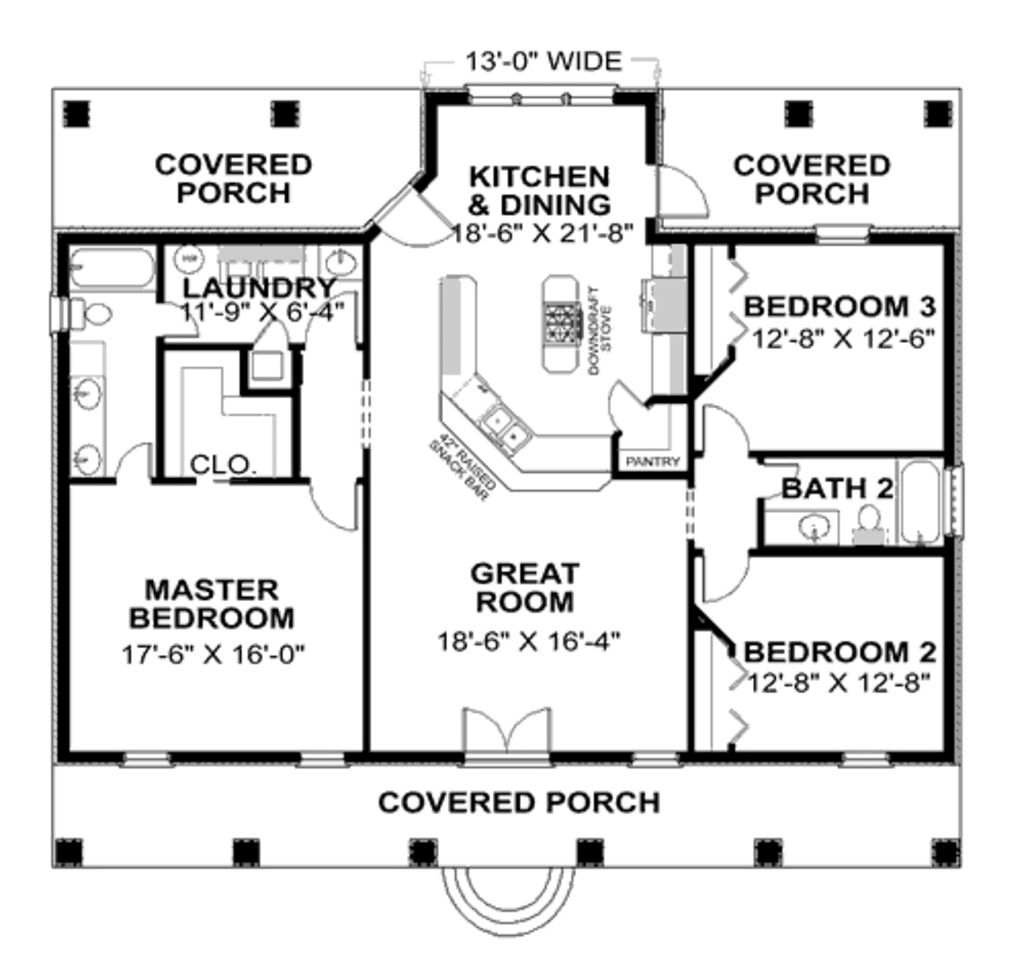
Source: pinimg.com
A traditional colonial-style house complements a classic porch design. Consider a wide, symmetrical porch with sturdy columns, a simple gable roof, and classic balustrades. Use traditional materials like wood and paint in colors that complement the house’s exterior. Architectural drawings would detail the porch’s dimensions, structural elements, and decorative features.
Back Porch Design for a Modern Minimalist House
A modern minimalist home calls for a clean, uncluttered porch design. Use sleek lines, simple materials like concrete or composite decking, and minimal ornamentation. A flat roof or a low-pitched roofline would maintain the minimalist aesthetic.
Illustration Description: The illustration shows a minimalist back porch with a concrete slab floor, clean-lined railings made of powder-coated steel, and a low-pitched, flat roof. Potted plants add a touch of greenery without overwhelming the minimalist design.
Aesthetic Appeal of Different Porch Flooring Materials
- Tile: Durable, low maintenance, available in various styles and colors, but can be cold underfoot.
- Brick: Durable, classic look, but can be more expensive and require more maintenance than composite or tile.
- Wood: Natural warmth and beauty, but requires regular maintenance and can be slippery when wet.
Enhancing Aesthetics with Plants and Landscaping
Plants and landscaping significantly enhance the back porch’s appeal. Choose plants that thrive in your climate and complement the overall style. Vines climbing along the pergola or railing add a touch of nature. Potted plants provide flexibility and color. Consider low-maintenance options for easy upkeep.
Frequently Asked Questions
What is the average lifespan of a back porch?
The lifespan varies greatly depending on the amaterialsused, climate, and maintenance. A well-built porch with quality materials can last 20-30 years or more.
How much does professional back porch installation typically cost?
Costs vary significantly based on size, materials, complexity, and location. Expect to pay anywhere from a few thousand to tens of thousands of dollars.
Can I build a back porch myself?
While possible for some simpler designs, building a back porch requires significant construction skills. For complex designs, professional assistance is recommended.
What are some low-maintenance back porch flooring options?
Composite decking, concrete pavers, and certain types of tile offer excellent low-maintenance solutions.
How do I ensure my back porch is properly insulated?
Insulation techniques depend on the climate and construction. Consider using insulated sheathing, foam insulation, and weatherstripping.

